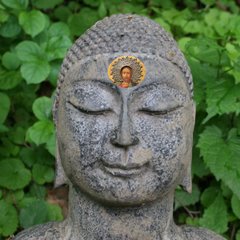Wednesday, August 24, 2011
Don't do anything
Monday, August 22, 2011
The path of the heart
 Last week, my wife and I were watching the DVD “Chartres Cathedral: a sacred geometry.” (Thanks, Luke Storms!)
Last week, my wife and I were watching the DVD “Chartres Cathedral: a sacred geometry.” (Thanks, Luke Storms!)Wednesday, August 17, 2011
Immediate Grace
 I
suppose one could argue that I am on a religious kick in terms of my
blog posts these days; I will just plead guilty as charged. After all, I
am in a work whose magnum opus, Beelzebub's Tales to his Grandson, is nothing more or less than an epic where all the major characters seek to find a right relationship between man and God.
I
suppose one could argue that I am on a religious kick in terms of my
blog posts these days; I will just plead guilty as charged. After all, I
am in a work whose magnum opus, Beelzebub's Tales to his Grandson, is nothing more or less than an epic where all the major characters seek to find a right relationship between man and God.Monday, August 15, 2011
A technical work
Friday, August 12, 2011
The house of the Lord, part 2
Thursday, August 11, 2011
The House of the Lord

Saturday, August 6, 2011
Technique and feeling
 My friend Douglas and I were most fortunate to be present at the emergence of this swallowtail from its chrysalis yesterday.
My friend Douglas and I were most fortunate to be present at the emergence of this swallowtail from its chrysalis yesterday.Thursday, August 4, 2011
Desires and non-desires
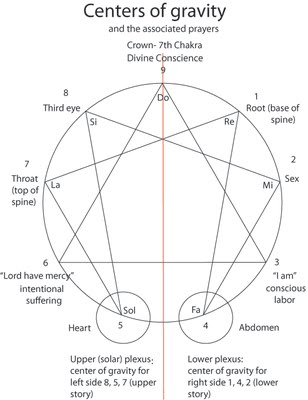
"'Consequently, like all three-centered beings of our Great Universe, we men existing on the Earth, owing to the presence in us also of the factors for engendering the divine impulse of Objective Conscience, must always inevitably struggle with the two quite opposite functionings arising and proceeding in our common presence, the results of which are always sensed by us either as "desires" or as "non desires." (ibid- Italics are mine.)
Wednesday, August 3, 2011
Prayer, involution, and evolution
Tuesday, August 2, 2011
Prayer and worship in the Gurdjieff Work

This prayer is the Abrahamic prayer, that is, the Old Testament prayer for being that founded the work leading to Christianity. It derives from the statement that the Lord made to Moses when he encountered the Lord in the form of a burning bush: “I am that I am.”
This prayer is specifically related to the first conscious shock, which is a work of essential affirmation and conscious labor. This particular work relates to the energy on the right side of the body–an energy which, esoterically speaking, is directly related to the work of the individual and their own personal effort. This work might be contextualized as an effort to show oneself as worthy through preparation, although there are many other dimensions to it.
Both prayers are absolutely necessary in order to achieve harmonious development, and furthermore stand in technical accordance with the principles expounded in the science of octaves.
This makes perfect sense, because if we wish to discover a truly effective worship, certainly, it won't be one we're familiar with.
Sunday, July 31, 2011
Lions and Lambs
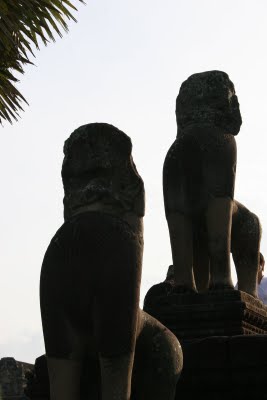
Prayer and worship has been much on my mind and in my heart lately. This is the first in what is likely to be a series of posts on the question, which is not touched on that often in the Gurdjieff work.
In the church, it's said that the Lamb of God takes away the sins of the world. This material energy- a freely given gift, sacrificed (sent downward, or given up) by the Lord in order to provide a path to salvation, is the higher energy that can free man from the devices of the mind and ego. The Lamb of God brings what the apostle Paul called "the Peace of God that passeth all understanding," exactly because this material force is higher than our mind.
The prayer to the Lamb of God in the Episcopal and Catholic churches runs something along these lines:
"Lord God, Lamb of God, who taketh away the sins of the world, have mercy upon us. (x2) Lord God, Lamb of God, who taketh away the sins of the world, receive our prayers."
This powerful esoteric prayer is a call to the forces that can, as Gurdjieff would have put it, "do;" active forces that can purify and cleanse us, rising above the confusion and dissolution of the ego, and leading us directly on a path towards absolution through remorse of conscience. Readers would do well to take note of this, since we're at a moment on the planet when such prayer is both extraordinarily necessary, and carries much more than the usual degree of force.
Remorse of conscience, like the Lamb of God, is only experienced upon the receipt of a certain kind of higher energy- it, too, is not a concept but a material substance- mediated by the presence of what Gurdjieff would have called higher hydrogens. It is not an experience we can "make happen." True remorse of conscience is a gift from above, and is not a single experience but consists of a series of levels, which are consequent upon the successive opening of a sequence of centers, or chakras, including the so-called "secret" chakras, which are rarely referred to even in schools, and cannot be worked on directly. Most particularly, in the Gurdjieff system, this level of work belongs to the second concious shock of intentional suffering, and is entirely contingent upon the opening of the heart, which (at position 5 on the bottom of the enneagram, like the abdominal chakra at 4) serves as the center of gravity for the second triad of centers or chakras on the left side of the diagram.
Astute and experienced Gurdjieffians who give this a bit of thought may finally understand precisely why the second conscious shock is placed in the wrong position on the diagram. It does indeed indicate what kind of work is necessary for the second conscious shock.
In conjunction with the action of remorse, the opening of the heart chakra occurs in stages and levels as well.
Mankind has been told since ancient (pre-Christian) times that the Lord maketh the Lamb to lie down with the lion. This, too, is not an abstraction, allegory, or a mythical proposition; nor is it to be taken literally in any outward sense. This ancient teaching (hearkening back to the tale of Daniel in the lion's den, and of course long before) describes an inner action which we seek. With enough inner work and prayer, eventually the meaning can become clear through an active experience.
In pondering this question, and examining our inner state in order to understand just what lions and Lambs are, it's worh noting the fact that our lion is forever asking the Lamb to lie down with it.
Unfortunately, the lion has a quite different intention than the Lord's, when it comes to Lambs.
May our prayers be heard.
Tuesday, July 19, 2011
Entanglement
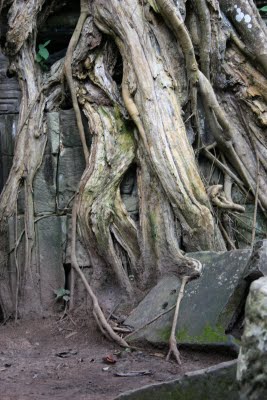
The title of this post is a teaser, since it suggests I'm about to write about the very interesting physics penomenon of entanglement, in which two particles are directly and instantaneously linked in time and space, despite a physical separation. (this "spooky" phenomenon is an active demonstration of the force Gurdjieff called "emanation.")
Alas, physics fans. We are off on a different tangent today.
I've been reading the record of Linji, which, typically of Zen texts, attempts to discard all attempts by the mind-as we ordinarly understand it- to understand anything. Above all, perhaps, the gift that Zen gives us is the gift of disentanglement from the world: a "leaving of home," an abandonment of all that we know and everything that gives saftey and comfort. I could say a number of things here about the potential and perhaps even real deficiencies of Zen- which despite its lofty practice retains distinctive features that, in the case of most masters, imply a partiality of development- but I won't. (Hurrah Zen. You are a good thing.)
Instead, what interests me today is the very real, physical, and substantial entanglement of my own Being with the real and material world. I was examining this question today during my sitting, in the context of the actual, ethereal, yet very real and "soupy" texture of ordinary consciousness and life, as opposed to what is actually necessary in the context of inner work and submission to a higher authority- not chunky beef, but a sweet, fragrant, and transparent broth.
Christ made it quite clear to us that we need to "lay up our treasures in heaven," yet this idea remains entirely intellectual. In reality, reality itself delivers within its own context the compelling and absolute conviction that we need to lay our treasures up right here, where we are. The mind, the body, the emotions- each one is quite literally entangled within its interactions with life.
It is a thickness unto death, this soup.
There is a potential for separation, but it is wholly unrealized. The necessary action of inner relationship, an intimate marriage to a higher principle, is steadfastly confused with the entanglements of this life. All the centers misunderstand this, when not acting in concert.
A close friend of mine on what one might call this "path of revelation" said to me today that the world does not need to be saved- that, in fact, the world is not even meant to be saved. He's exactly right in this: the world that needs a saviour, and that needs saving- the only world that can be saved- is the inner world, the world of relationship to God. No other action is necessary; no other saving is either required or possible; and no other saving is called for.
My entanglement with the outer world is an insoluable problem, an intentionally presented difficulty, an impossible task put in front of me solely in the hope that I may someday recognize that it IS insoluble, impossible: a koan, if you will, that Linji himself might have appreciated. His outright rejection of conceptual approachs leads us down a path toward this understanding, although the intentional obscurity of Zen texts leaves us, as always, a few steps short of the compassion needed to sniff out any potential destination.
This entanglement of mine is my own mistake; I dwell within it actively, perpetually, insistently, because I'm unable and even unwilling to understand how insuffcient it is. Surely sex, money, power, and food will sooner or later, in one way or another, be sufficient, I think to myself. I even actively deny the higher forces acting within me in favor of these chimeras. This is a daily, even a momentary, action: a thousand times a day I can come back to myself and see my abandonment of the sacred, which despite my inner blindness is perpetually present, and perpetually offered.
It's the highlight of my fallen nature, which I remain stubbornly not-present to. As Christ or Paul might have said, my belief in the world, rather than a knowing of God, is at the root of the nature of my sin. When I say I do not attend, it is exactly this that I do not attend to: the gifts of the Lord, freely given.
And how to seek? When I seek attention, to seek the attention of insistence, of "demand," of the pointed finger and the focused eye, is not enough. Even here, in the midst of great effort, I have mistaken what attention is.
There is only one attention to seek, only one attention that CAN be sought, and it is not turned in any of these directions.
It isn't turned in ANY direction: it simply exists in all directions, and it calls me to participate in, not to create, attention.
This is in the nature of true worship.
May our prayers be heard.
Wednesday, July 13, 2011
Search, and Error
Saturday, July 2, 2011
It's early morning, and I am looking out over People's Park in Shanghai, towards the Shanghai Museum. (Just for the record, the above photo is of the Bund in Shanghai, not the Shanghai Museum.) The city is appealingly shrouded in mist this morning, which softens the hard lines of concrete and steel that characterize almost everything man sees fit to build these days. As is often the case, I'm trying to sort out how to write about what I'm currently pondering without sounding didactic... perhaps an impossible task, but there you have it.
Wednesday, June 29, 2011
Forgiveness

Because we lack understanding, yet think we understand, we aren't capable of the first step towards understanding without help.
Tuesday, June 28, 2011
ten thousand times
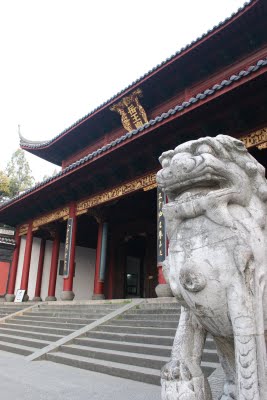
One of the guilty pleasures (if there are any) in presiding over an operation like this blog is the occasional opportunity to just muse to oneself, out loud, in the privacy of one's own hotel room (or wherever,) about whatever one is pondering at the moment. One begins in a particular place: one does not know where one will go. The flow of associations weaves together a new and unexpected story, unlike anything that might have been planned in the midst of the usual wiseacring.
Saturday, June 25, 2011
what's the alternative?


